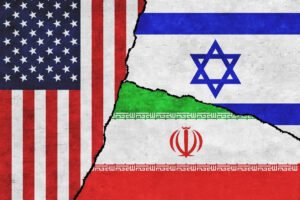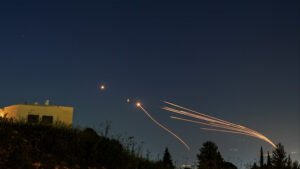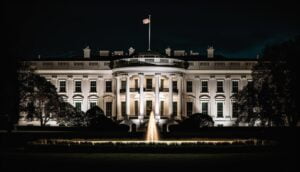Is Iran attacking Israel today?
Iran launched a direct attack on Israel early Sunday, marking a major shift from its usual tactic of using proxy groups. The strike was in response to an Israeli airstrike in Syria that killed two Iranian generals. Israel, with support from the U.S. and Britain, intercepted nearly all of the 300+ drones and missiles, with only minor damage and one reported injury. Experts believe Iran wanted to send a strong warning while avoiding an all-out war. Israel’s War Cabinet is debating its response, with some pushing for military action and others urging restraint to maintain regional alliances.
Iran, meanwhile, insists it does not seek further conflict unless provoked. The U.S. and its allies are prioritizing diplomacy, aiming to prevent further escalation. The G7 and U.N. Security Council held emergency meetings, condemning Iran’s attack and warning of potential consequences if tensions rise further.

Is Iran attacking Israel today?
Iran launched a rare direct attack on Israel early Sunday, breaking from its long-standing strategy of relying on allied groups like Hezbollah and the Houthis to target its rival. This marks a dangerous escalation in regional tensions, triggered by an April 1 airstrike—widely blamed on Israel—that destroyed part of Iran’s diplomatic compound in Syria, killing two senior Iranian generals. Tehran framed its retaliatory strike as a measured response, aiming to punish Israel while signaling that it would not tolerate attacks on its interests.
A Calculated Attack Meets Robust Defense
Iran fired over 300 drones and missiles at Israel, but the vast majority were intercepted by Israel’s advanced air defense systems, aided by the U.S., Britain, and regional partners. Israeli officials reported only minor damage: a young girl was injured by shrapnel in southern Israel, and a missile strike caused limited harm to an airbase. While dramatic, the attack appeared carefully orchestrated. Analysts note that Iran likely signaled its plans in advance, giving Israel and its allies time to prepare defenses. Tehran also emphasized that it had targeted military sites rather than civilian areas—a move seen as an attempt to limit backlash.

What’s Next? Both Sides Claim Victory, but Risks Linger
Both Iran and Israel may view the exchange as a tactical win. For Iran, the strike demonstrated its ability to bypass proxies and hit Israel directly, restoring deterrence after the Syria attack. For Israel, the successful interception rate—99%, according to its military—showcased its technological edge and reinforced alliances with Western partners. However, the situation remains volatile. Israel’s War Cabinet convened on Sunday to debate a response, but divisions emerged. Hardliners pushed for a forceful retaliation, while moderates urged restraint to avoid alienating allies like the U.S., which has pressed Israel to prevent further escalation.
Benny Gantz, a key member of Israel’s leadership, stated that the country would “exact a price from Iran when and how we choose,” signaling that Israel may delay its response to avoid inflaming tensions. Experts warn that a heavy-handed Israeli counterattack could spiral into a broader regional war, drawing in Hezbollah from Lebanon or Iranian-backed militias in Iraq. Conversely, doing nothing risks emboldening Tehran.
Regional Fallout: A Fragile Balance
The attack underscores how the Israel-Gaza war is destabilizing the Middle East. Until now, Iran had avoided direct conflict with Israel, relying on its “axis of resistance”—groups like Hamas, Hezbollah, and the Houthis—to challenge Israeli and U.S. interests. Sunday’s strike suggests that Tehran is willing to abandon this indirect approach if provoked, raising fears of a wider confrontation.
Yet Iran’s actions also reveal a level of caution. By limiting the scale of its attack and focusing on military targets, it sought to avoid civilian casualties that could justify a massive Israeli retaliation. The regime also likely calculated that Israel’s defenses would neutralize most threats, allowing both sides a chance to de-escalate.

Global Reactions: Diplomacy Takes Center Stage
The international community scrambled to contain the crisis. U.S. President Joe Biden reaffirmed “ironclad” support for Iaelsr but urged Prime Minister Benjamin Netanyahu to avoid further strikes, prioritizing diplomatic solutions. The G7 nations condemned Iran’s attack and pledged to coordinate sanctions, while the U.N. Security Council held an emergency meeting. Crucially, Arab states like Jordan and Saudi Arabia—which have tense relations with Iran but have normalized ties with Israel—helped intercept drones, reflecting a shared interest in regional stability.

A Precarious Path Forward
For now, all sides seem intent on avoiding an all-out war. Iran declared the matter “concluded” unless Israel retaliates, while the U.S. and Europe continue to pressure Netanyahu to show restraint. However, the risk of miscalculation remains high. Even a limited Israeli strike on Iranian soil—such as targeting military facilities or nuclear sites—could force Tehran to respond more aggressively, reigniting the cycle of escalation.
The situation also complicates efforts to end the Gaza conflict. Hamas, hoping to leverage regional chaos, may harden its demands in ceasefire talks. Meanwhile, Hezbollah and the Houthis could escalate attacks if Israel-Iran tensions continue to rise, further threatening global shipping routes and energy markets.
In the coming days, much will depend on Israel’s next move. A measured response—such as covert operations or cyberattacks—might allow tensions to cool. But with both nations on edge, the threat of a misstep looms large, leaving the Middle East bracing for what could become its most dangerous conflict in decades.
Check out TimesWordle.com for all the latest news
You must be logged in to post a comment.